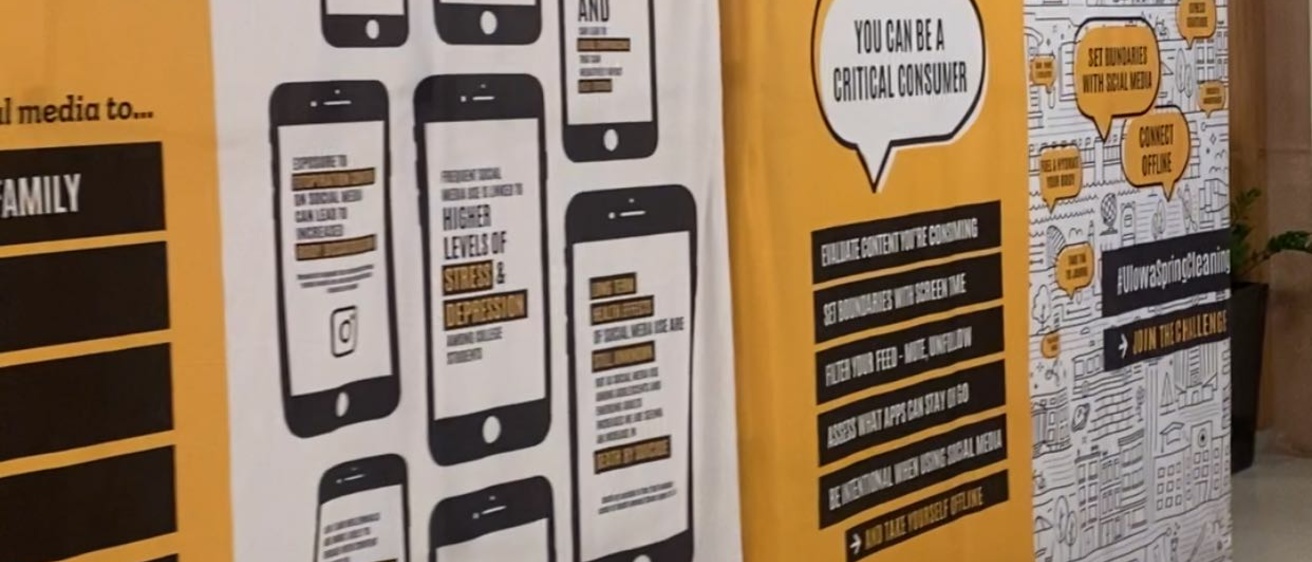In today’s digital age, social media plays an integral role in how we connect with others, share experiences, and stay informed. However, its pervasive presence can have both positive and negative impacts on mental health. As the lines between our online presence and are life offline continue to blur together, it becomes increasingly important to monitor and manage how we engage with social media to best support our mental wellbeing. This is why initiatives like the University Counseling Service’s recent Social Media Spring Cleaning Event are vital in helping students assess and understand the impact of their digital habits and take steps to cultivate a healthy relationship with technology.
The Impact of Social Media on Mental Health
Social media offers opportunities for connection and meaning making. It can help us stay connected with family and friends, learn about fun activities going on in our communities, and help us stay aware of current events. However, excessive social media use can contribute to anxiety, depression, and feelings of loneliness. It can reinforce the notion that we need to strive to live up to an idealized image and the curated content can lead to unrealistic expectations for ourselves and others. Additionally, the cyberbullying that can occur on social media platforms can be particularly devastating, especially for teens and young adults searching for emotional connection with others.
Steps to Take to Monitor Social Media Usage
One way to help prevent negative impacts of technology is to learn how to assess and monitor our social media use. Ask yourself the following questions:
- What apps or social media platforms do you use the most?
- What type of social media content do you consume?
- How do you contribute to social media?
- How much time do you spend on a screen each week checking social media?
- When you engage in social media, how does it impact your mood or how you feel in your body? Do you compare yourself to others online or does it help you feel connected to others?
By asking ourselves these and other questions, we can better assess our use of social media and how it impacts our physical and mental wellbeing. If after auditing your social media accounts you find yourself feeling down or engaging in social comparison, consider the following actions:
- Unfollow or mute accounts that are sources of negativity or trigger self-comparison
- Set boundaries, like limiting your screen time or uninstalling an app on your phone
- Follow accounts that give mental health tips or those that help foster gratitude
- Consider adding mindfulness or self-care apps to your phone
By being mindful of the content we consume, we can create a social media environment that contributes positively to our mental health on campus, rather than detracting from it. For additional supportive social media content and mental health tips, visit UCS’s Instagram account @uiowaucs.
